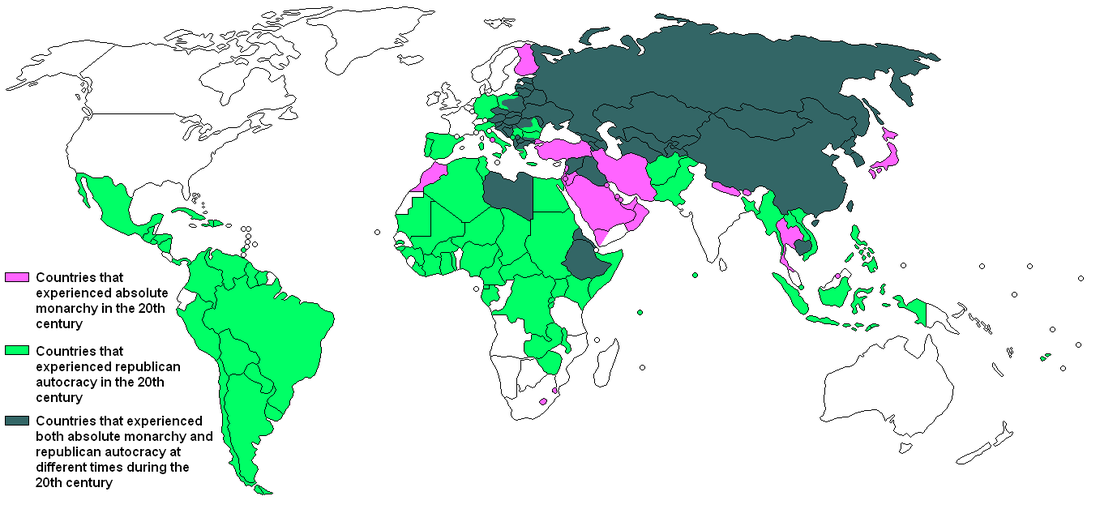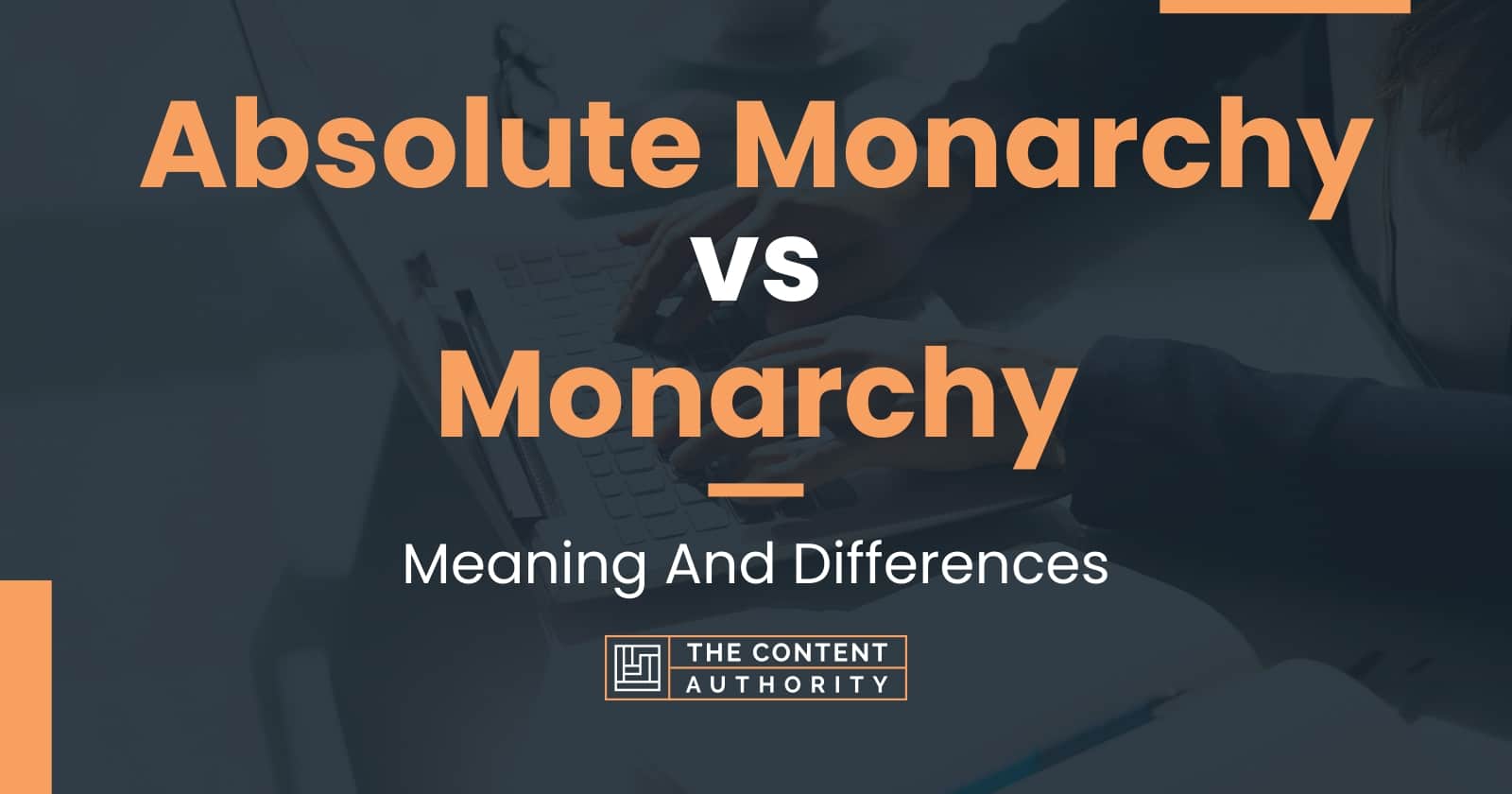Exploring The Realm Of Absolute Monarchy: A Deep Dive Into Unrestricted Power
When it comes to understanding the intricacies of global governance, the concept of absolute monarchy stands as a unique and fascinating topic. In today's world, where democracy and republics dominate, there remains a select group of nations that adhere to the principles of absolute monarchy. These monarchies, characterized by unrestricted power vested in a single ruler, offer a glimpse into a governance model that has shaped history. Among these, one nation stands out as a true embodiment of absolute monarchy, where the ruler’s authority is absolute and unchallenged. So, which country has an unrestricted absolute monarchy? This article delves into the specifics of this governance system, offering insights into its workings and implications.
The concept of absolute monarchy has evolved over centuries, adapting to the changing global landscape. While many countries have transitioned to constitutional monarchies or republics, a few have maintained the tradition of absolute rule. This form of governance, where the monarch wields complete authority without checks and balances, raises intriguing questions about power, sovereignty, and governance. As we explore the topic, it becomes essential to understand the nuances of such systems and their impact on the citizens and the global community.
In this article, we will uncover the country that exemplifies the concept of unrestricted absolute monarchy. By examining its political structure, cultural context, and historical background, we aim to provide a comprehensive understanding of this unique governance model. Furthermore, we will analyze the implications of such a system in the modern world, addressing the concerns and benefits associated with it. Let us embark on this journey of discovery, exploring the nation that embodies the essence of absolute monarchy.
Read also:Why Chloandmatt Fans Are Hooked The Ultimate Guide
What is Absolute Monarchy?
Absolute monarchy refers to a form of governance where a single ruler holds supreme authority over the state, with no legal limitations or checks on their power. Unlike constitutional monarchies, where the monarch's powers are restricted by laws or a constitution, absolute monarchies grant the ruler complete control over the government and its functions. This system has been prevalent throughout history, with various nations adopting it at different points in time. The absence of institutional constraints allows the monarch to make decisions unilaterally, shaping the nation's policies and direction.
Why Does Absolute Monarchy Still Exist Today?
Despite the global trend towards democratic governance, absolute monarchies continue to exist in certain regions. Several factors contribute to their persistence, including cultural traditions, historical continuity, and political stability. These monarchies often enjoy widespread support from their citizens, who view the ruler as a symbol of national unity and identity. Additionally, the absence of political turmoil and the stability provided by a centralized authority make absolute monarchies appealing in certain contexts. However, this raises questions about the balance between governance and individual freedoms, prompting a deeper exploration of the topic.
Which Country Has an Unrestricted Absolute Monarchy?
Among the nations that practice absolute monarchy, one stands out as a prime example of unrestricted power vested in a single ruler. This country, located in the Middle East, is renowned for its adherence to traditional governance structures. The monarch in this nation exercises complete authority over all aspects of governance, from legislative decisions to judicial matters. This system, while unique, has its own set of advantages and challenges, which we will explore in detail. So, which country has an unrestricted absolute monarchy? The answer lies in the pages ahead.
Understanding the Historical Context
To fully grasp the significance of absolute monarchy, it is essential to examine its historical roots. This governance model has existed for centuries, shaping the political landscape of various civilizations. From the ancient empires of Mesopotamia to the medieval kingdoms of Europe, absolute monarchy has played a crucial role in shaping world history. By studying the historical context, we gain insights into the factors that have contributed to its longevity and relevance in modern times.
How Does Absolute Monarchy Function?
The functioning of an absolute monarchy is characterized by centralized authority and minimal institutional oversight. The monarch, as the supreme ruler, makes decisions on behalf of the nation, ensuring stability and continuity. This system, while effective in certain scenarios, raises concerns about accountability and transparency. By examining the mechanisms of absolute monarchy, we can better understand its impact on governance and society. Additionally, we will explore the role of the monarch in shaping the nation's policies and direction.
Which Country Has an Unrestricted Absolute Monarchy? Exploring the Nation
As we delve deeper into the topic, it becomes imperative to identify the nation that exemplifies unrestricted absolute monarchy. This country, with its rich cultural heritage and historical significance, offers a unique perspective on governance. By studying its political structure and societal dynamics, we gain a comprehensive understanding of the implications of absolute monarchy. Furthermore, we will analyze the challenges and opportunities presented by this governance model in the modern world.
Read also:Exploring The World Of 9x Movies Hub Your Ultimate Guide
What Are the Implications of Absolute Monarchy?
The implications of absolute monarchy extend beyond the realm of governance, affecting various aspects of society. While proponents argue that this system ensures stability and continuity, critics highlight concerns about individual freedoms and accountability. By examining the implications of absolute monarchy, we can better understand its impact on the global community. Additionally, we will explore the potential for reform and adaptation in these governance systems.
Which Country Has an Unrestricted Absolute Monarchy? Cultural Dimensions
The cultural dimensions of absolute monarchy are as significant as its political implications. In the nation that exemplifies unrestricted absolute monarchy, culture plays a crucial role in shaping governance and societal norms. By studying the cultural context, we gain insights into the values and traditions that underpin this governance model. Furthermore, we will explore the role of culture in maintaining the legitimacy and authority of the monarch.
What Are the Challenges Faced by Absolute Monarchies?
Despite their historical significance, absolute monarchies face numerous challenges in the modern world. These include issues related to governance, accountability, and societal expectations. By examining the challenges faced by these governance systems, we can better understand their relevance in contemporary times. Additionally, we will explore potential solutions and strategies for addressing these challenges.
Conclusion: The Future of Absolute Monarchy
In conclusion, the concept of absolute monarchy remains a fascinating and complex topic in the realm of global governance. While the number of nations practicing this system has diminished over time, its persistence in certain regions highlights its enduring relevance. By exploring the nation that exemplifies unrestricted absolute monarchy, we gain valuable insights into the workings of this governance model. As we look to the future, it becomes essential to address the challenges and opportunities presented by absolute monarchy, ensuring its compatibility with modern societal norms and expectations.
Which Country Has an Unrestricted Absolute Monarchy? Final Thoughts
In our quest to understand which country has an unrestricted absolute monarchy, we have uncovered the complexities and nuances of this governance system. By examining its historical roots, cultural dimensions, and political implications, we have gained a comprehensive understanding of its significance. As we reflect on the findings, it becomes clear that absolute monarchy, while unique, requires careful consideration and adaptation to meet the demands of the modern world.
What Can We Learn from Absolute Monarchies?
The study of absolute monarchies offers valuable lessons about governance, power, and societal dynamics. By analyzing the successes and challenges of these systems, we can better understand the principles of effective governance. Additionally, we can draw insights into the importance of cultural traditions and historical continuity in shaping modern societies. As we conclude this exploration, we invite readers to reflect on the implications of absolute monarchy and its role in the global community.
Table of Contents
- Exploring the Realm of Absolute Monarchy: A Deep Dive into Unrestricted Power
- What is Absolute Monarchy?
- Why Does Absolute Monarchy Still Exist Today?
- Which Country Has an Unrestricted Absolute Monarchy?
- Understanding the Historical Context
- How Does Absolute Monarchy Function?
- Which Country Has an Unrestricted Absolute Monarchy? Exploring the Nation
- What Are the Implications of Absolute Monarchy?
- Which Country Has an Unrestricted Absolute Monarchy? Cultural Dimensions
- What Are the Challenges Faced by Absolute Monarchies?
- Conclusion: The Future of Absolute Monarchy
- Which Country Has an Unrestricted Absolute Monarchy? Final Thoughts
- What Can We Learn from Absolute Monarchies?
Article Recommendations


